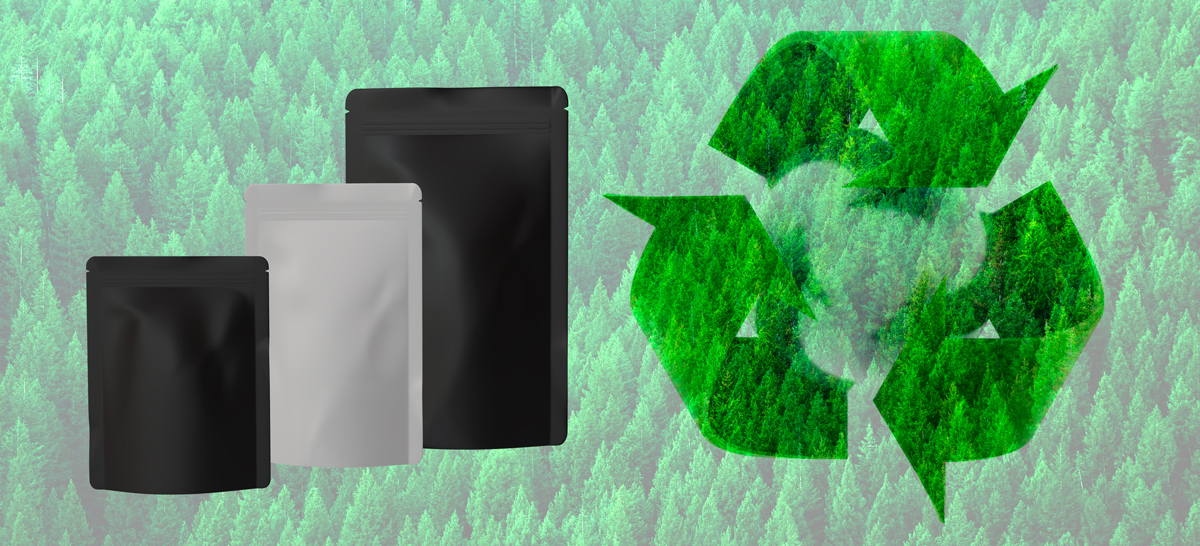What are Post Consumer Recycled (PCR) Mylar Bags?

Post-consumer recycled (PCR) Mylar bags are a significant stride in the sustainable packaging industry. Once these bags are used and discarded by consumers, they’re collected, processed, and remanufactured into new products. This article explores the concept, process, benefits, and challenges of PCR Mylar bags.
What is Mylar?
Mylar is a form of polyester resin used to make heat-resistant plastic films and sheets. It’s lightweight, flexible, and highly durable, which makes it an excellent choice for various packaging needs.
Properties of Mylar
The key properties of Mylar include its strength, transparency, and resistance to moisture, chemicals, and temperature changes. These attributes make it highly valued in both consumer and industrial applications.
Understanding Post-Consumer Recycling
Simply put, PCR is the process of recycling materials that have been used and discarded by consumers. This is different from pre-consumer recycling, which deals with manufacturing scraps.
Benefits of PCR
Using PCR materials helps reduce the need for virgin resources, lowers greenhouse gas emissions, and lessens landfill waste. It’s a critical component of a circular economy where materials are reused to their fullest extent.
The Lifecycle of PCR Mylar Bags
The process of transforming used Mylar into new bags involves several steps, each critical to ensuring the quality and usability of the final product. These include:
1.) Collection and Sorting
This initial phase involves collecting used Mylar products and sorting them based on quality and type. This step is crucial for maintaining the integrity of the recycled material.
2.) Cleaning and Processing
Once sorted, the Mylar is cleaned to remove impurities. It is then melted down and reformed into pellets that can be used to manufacture new Mylar sheets and bags.
3.) Manufacturing of New Products
These pellets are then transformed into new Mylar bags through a series of manufacturing processes that ensure the bags meet all necessary quality standards.
Benefits of PCR Mylar Bags
These Mylar bags offer several advantages over their non-recycled counterparts. More specifically:
Environmental Impact
By reusing Mylar, PCR bags significantly reduce the environmental footprint of producing new materials and disposing of old ones.
Economic Benefits
Recycling Mylar also offers economic advantages by reducing the costs associated with raw material extraction and waste disposal.
Challenges and Limitations
Despite their benefits, PCR Mylar bags face several challenges that affect their quality and market acceptance. These include:
Quality Concerns
Recycled Mylar may not always meet the high standards required for certain applications, leading to concerns about the performance of PCR products. Some properties of PCR bags do not provide the long-term shelf life of traditional mylar bags.
Market Demand
The demand for recycled products fluctuates based on consumer awareness, regulatory pressures, and economic factors, which can impact the viability of recycling programs. Some states require PCR materials for their cannabis packaging.
Conclusion
The future of PCR Mylar bags looks promising with ongoing advances in recycling technologies and increased consumer sustainability awareness.
PCR Mylar bags are a practical solution to the pressing need for sustainable packaging options. While they present certain challenges, their benefits make them an invaluable component of modern waste management strategies. As they continue to progress they will become more and more prevalent with many states requiring them to comply with laws.
Does your state require PCR packaging? Contact us now for a free consultation and quote on PCR cannabis packaging options!
